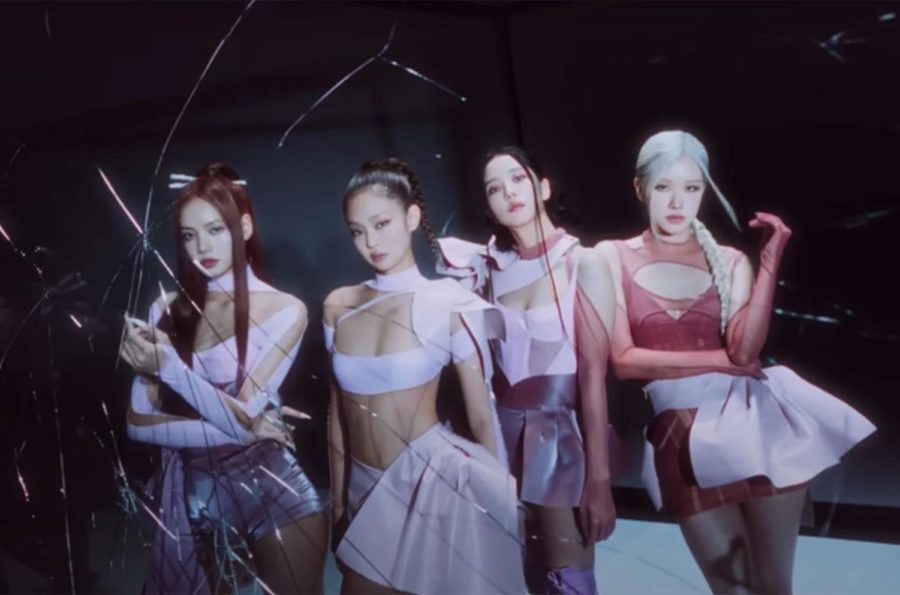Pink Venom: The descent of modern music
On July 31, the internet broke.
A 30 second YouTube video announcing Black Pink’s new single lit the dry summer terrain in flames. Within a day, promotional pictures were released, Instagram posts were circulating and all anyone could talk about was this: Black Pink’s two-year hiatus had finally come to an end.
In the first 24 hours after its release, “Pink Venom” amassed 86 million views and jumped to No. 1 on the global Spotify chart. News articles raved about how catchy the song was, die-hard fans posted dance covers and, on paper, everything seemed great. Black Pink, who previously exploded in popularity with their 2018 hit “Ddu Ddu Ddu,” did it again.
They made the summer hit.
But as I sat watching the music video, something didn’t feel right. As a longtime fan, I was expecting a memorable beat, stunning outfits and an overall Black Pink performance. Yet instead of being pleased or even satisfied, my excitement fell flat. Where was the yearning and memorable choreography from their song ‘Lovesick Girls’? Or the catchy, acoustic sound of ‘Stay’? Instead of their signature spunk, this music video wasn’t interesting. It was generic. There was no theme, no originality and the lyrics felt like cliches stacked on top of each other.
In other words, the song didn’t feel like a song; it felt like an imposter of a song, a remix of old hits that a fan could have made without the resources and time of Black Pink’s company. The hiatus pulled audience’s expectations so taut that when the song ended up being bland, disappointment made it snap.
Instead of producing a genuine hit worth everyone’s time, I had a lurking suspicion that the company wanted to play it safe.
The K-POP industry is an infamously competitive system. Starting from when they’re young teens, artists have to endure exhausting schedules, extreme diets and even hold an expectation to better themselves in every way, from their talents to their looks. In a competitive and over-capable society, the juxtaposition between creativity and perfection is an interesting thing to note.
If creativity is separated from the work, then won’t manufacturing take the place of the soul?
The lyrics of “Pink Venom” are empty, the chorus is predictable and it’s hard to feel anything when you listen to the song. The point of art is to make you feel things, whether it’s love, grief, joy or frustration. And unfortunately, this is what Black Pink lost sight of.
I worry that as the music grows more auto-tuned and strays from an actual message to a money ploy, the industry will melt into an ugly plastic. In “Pink Venom,” Black Pink sings, “I’m a flower with venom. After taking your soul, look what you made us do.” In the context of the song, this isn’t very profound, but with the state of the music industry all around the world, I think it reflects our culture. Should we exchange our creativity for popularity and overused tropes? Should we allow our standards for self to be eaten up by the want for viral hits?
Though I support Black Pink’s members and will continue to listen to their other songs on repeat, “Pink Venom” is a definite skip. The song may circle around my head a few times, but in my heart, it won’t leave a lasting impression. I sincerely hope that Black Pink will learn from their critics and use that advice to find their signature sound again.

Senior Juliana Mun is the opinion editor and this is her second year on staff. In her free time, she enjoys writing long stories, traveling and going out...



